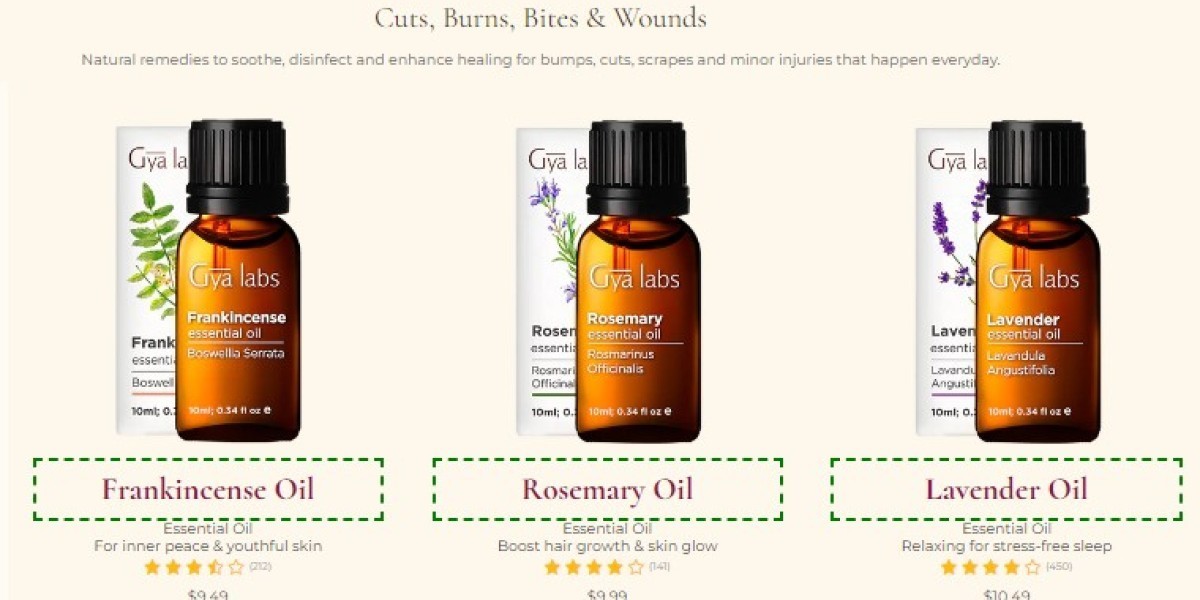Wounds, whether minor or more severe, are a part of life. Whether it's a cut, a scrape, a burn, or a surgical incision, the healing process can sometimes be slow and painful. However, nature provides us with an array of remedies to accelerate the healing process. Essential oils, derived from various plants and herbs, have gained popularity for their remarkable healing properties. In this article, we will explore the top essential oils for open wounds.
- Lavender Essential Oil
Lavender essential oil is a versatile oil that is known for its antibacterial and anti-inflammatory properties. It can help prevent infection in open wounds and reduce inflammation. Lavender oil can be applied topically to the wound to promote faster healing and reduce scarring. It is one of the most popular essential oils for open wounds due to its gentle nature and pleasant fragrance.
- Tea Tree Essential Oil
Tea tree oil, also known as melaleuca oil, is a potent antiseptic. It is highly effective in preventing infection in open wounds and promotes the healing process. Its antimicrobial properties make it a top choice for treating cuts, abrasions, and even insect bites. Its strong, medicinal scent can be a bit overpowering, so be sure to dilute it with a carrier oil before use.
- Frankincense Essential Oil
Frankincense essential oil has been used for centuries for its healing properties. It has strong anti-inflammatory and analgesic properties, making it an excellent choice for speeding up wound healing. Frankincense oil can also help reduce the appearance of scars and can be applied directly to the wound or diluted with a carrier oil.
- Helichrysum Essential Oil
Helichrysum oil is renowned for its regenerative properties. It can promote tissue repair and reduce inflammation, making it beneficial for open wounds. This oil is especially useful for wounds that are slow to heal or have become chronic. Helichrysum essential oil is gentle on the skin and can be applied directly to the wound or blended with other essential oils.
- Chamomile Essential Oil
Chamomile essential oil, specifically Roman chamomile, is known for its soothing and anti-inflammatory qualities. It can help calm irritation and reduce pain associated with open wounds. Chamomile oil is suitable for sensitive skin and can be applied directly to the wound or diluted with a carrier oil for a gentle application.
- Eucalyptus Essential Oil
Eucalyptus oil has strong antimicrobial properties and can effectively prevent infection in open wounds. It also helps increase blood flow to the affected area, promoting quicker healing. Be cautious when using eucalyptus oil, as it has a strong, minty scent that can be overpowering for some.
- Myrrh Essential Oil
Myrrh essential oil is well-known for its ability to promote skin health and wound healing. It possesses anti-inflammatory and antimicrobial properties, making it a valuable oil for open wounds. Myrrh oil can also reduce the risk of scarring and is particularly beneficial for surgical incisions.
Incorporating Essential Oils for Open Wounds
To effectively use essential oils for open wounds, here's a simple process:
Cleanse the wound with mild soap and water.
Dilute the chosen essential oil with a carrier oil (such as coconut, jojoba, or sweet almond oil) to avoid skin irritation. Typically, a 2-3% dilution is recommended.
Apply the diluted essential oil mixture to the wound using a clean cotton ball or swab.
Cover the wound with a sterile bandage to keep it clean and promote faster healing.
Repeat this process as needed until the wound is healed.
Conclusion
Essential oils offer a natural and effective way to accelerate the healing of open wounds. These oils, such as lavender, tea tree, frankincense, helichrysum, chamomile, eucalyptus, and myrrh, possess unique properties that can prevent infection, reduce inflammation, and minimize scarring. When used correctly, essential oils for open wounds can be a valuable addition to your natural healing toolkit.
However, it's essential to remember that not all essential oils are suitable for every wound, so consult with a healthcare professional if you have concerns or underlying medical conditions. Always prioritize safety and well-being while enjoying the benefits of these remarkable essential oils.







